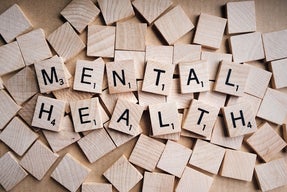Every day, another global problem seems to surface. It could be another racial issue that prevents minorities from living a full and free life that highlights the absence of equality, or it could be a climate change dilemma that reminds us that if we don’t make a change now, the Earth will have fewer years to live. But rather than express shock and fear about the incoming wave of problems, I stare blankly at the news and scroll on. I hold back on messaging everyone I know about the issues because I already know they are aware. Although we don’t want to say that we don’t care anymore (because we do), it just gets harder and harder to show sympathy. We all have become desensitized.
Desensitization is a psychological term; it roughly translates to the diminished emotional responsiveness to a negative or positive stimulus after repeated exposure to it. A simple example would be if a soccer team won every game that they played. Eventually, the team would no longer feel as glorious as they did during their first win because that particular emotion has been “overplayed”. When it comes to the current flow of bad news, people eventually get sick and tired of hearing the constant barrage of distress and grief. They turn off their sympathy button and continue to live each day because they don’t know how to react anymore. Everything that they did do, was almost always never enough.
Desensitization is something that affects all of us. But now that we know it exists, we can take the time to try and stop it. Below are some recommendations to get yourself and your mental health back on track and out of the loop.
1. Do not overwhelm yourself.
There are so many urgent issues out there and the news’s job is to report them to you, day after day. But you can take your time to understand each problem. Read more into individual reports, instead of just the traumatizing headlines, to understand them to their full capacity. Don’t try and read all the news reports out there and burn yourself out.
2. Take a break from the news.
You aren’t being insensitive if you switch off your news alerts for a couple of days or avoid the CBC news channel. You need the time to rest and reset your mind after the torrent of troubling news articles. Take the opportunity to breathe and think about what you are fortunate to have in life. Remember to be grateful.
3. Talk the issues out.
Chances are the people you know are worried about the same things you are. Reach out to them and talk about the world’s problems to release some tension or just take the time to recharge together. Knowing that someone is going through the same thing you are helps you to not feel guilty towards something you didn’t do.
These recommendations may not help everyone, but they helped me to understand that it’s okay to feel a bit of desensitization towards the news. It’s important to remember that there are pieces of good news out there; it’s just common to report the tragedies first. It’s not your fault that you feel overwhelmed; just know it happens to all of us.


